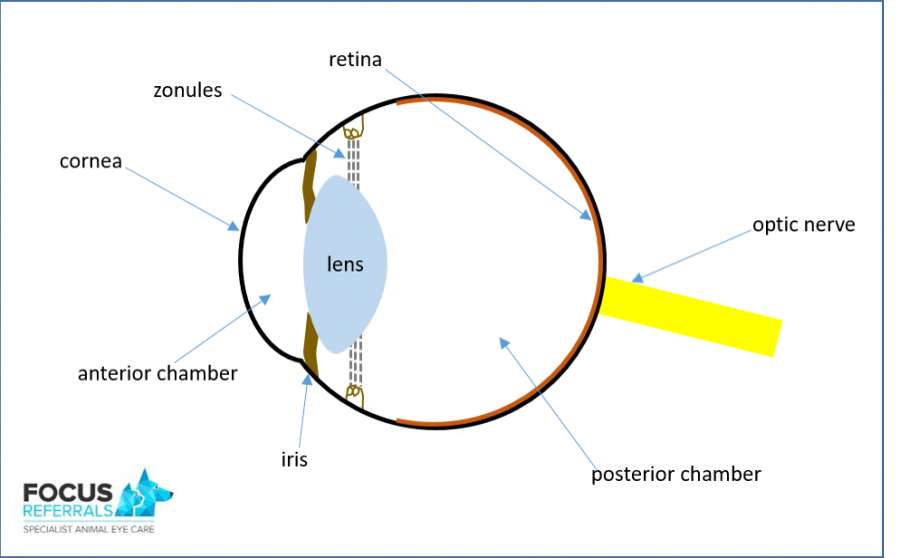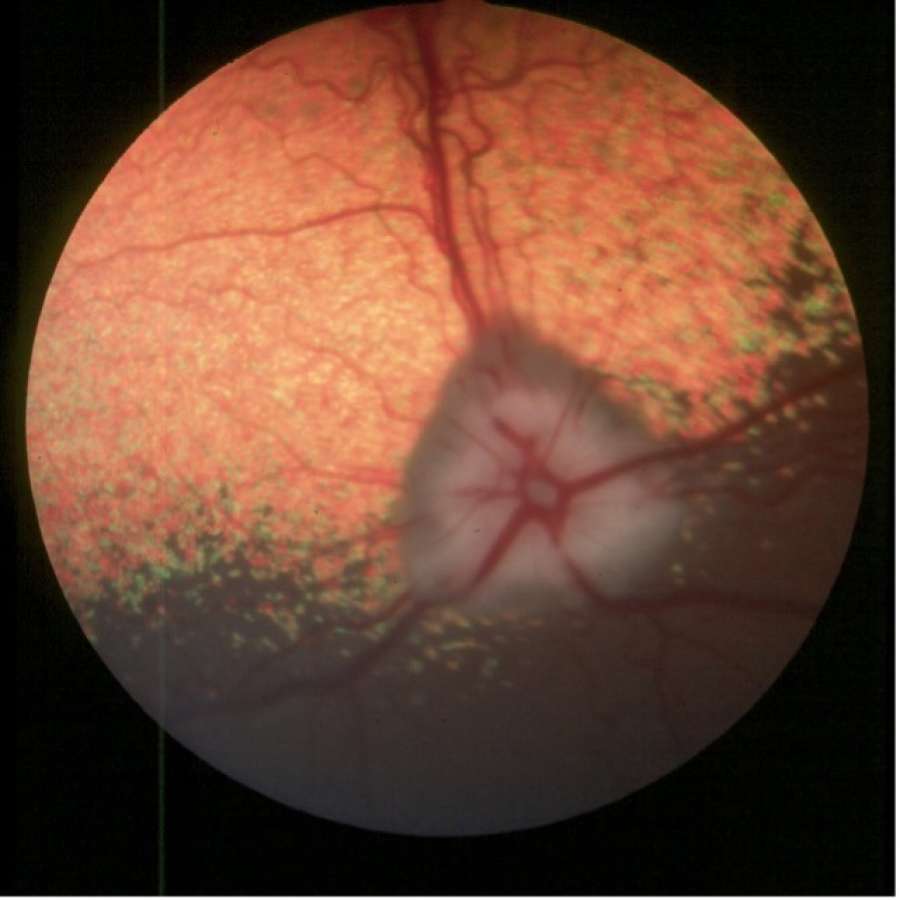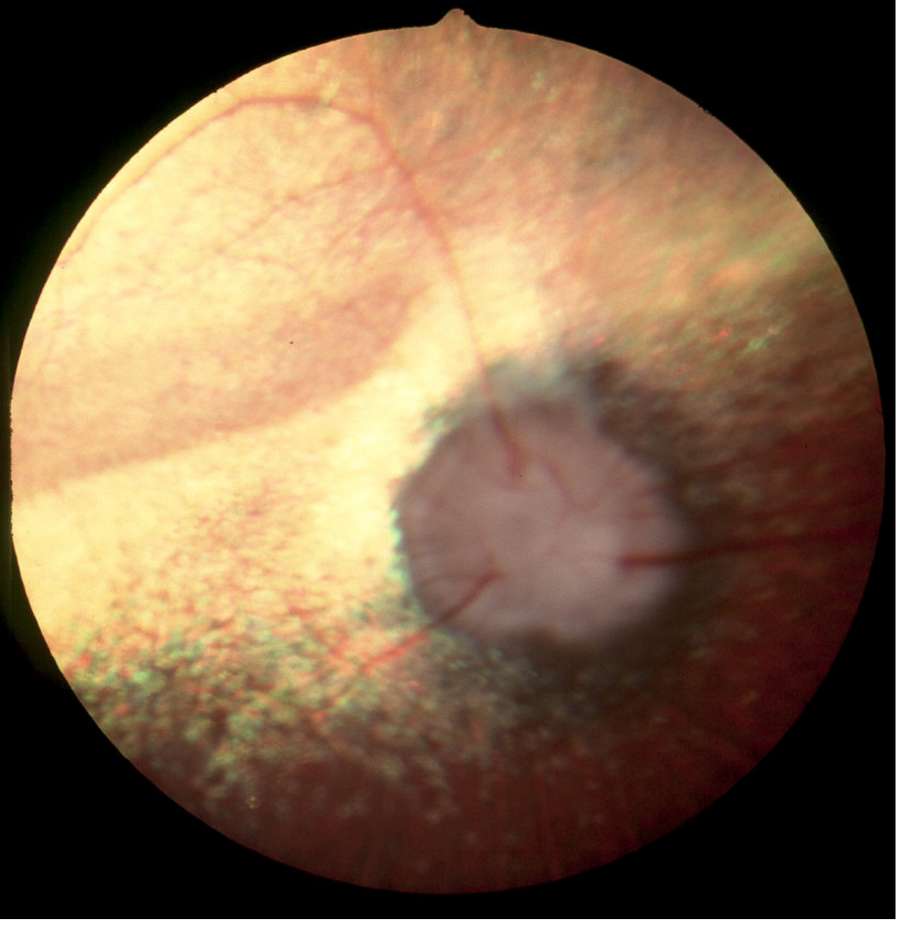Generalised Progressive Retinal Atrophy (GPRA)
What is the retina?
The retina (back of the eye) converts light into electrical signals which pass down the optic nerve to the brain. The brain converts these signals into recognisable images (the things we ‘see’.)

What is GPRA?
GPRA is an inherited condition (passed from parents to puppies) that causes gradual blindness. Over a period of months to years, retinal photoreceptors (cells that convert light into electrical signals for the brain) slowly deteriorate until they completely stop working.
There are two types of photoreceptors: rods (for night vision) and cones (for bright light and colour). Initially, dogs with GPRA lose their night vision as the rods are the first cells to deteriorate. This progresses to complete blindness once the number of cones also reduces.
Most dogs with GPRA begin to develop symptoms between the ages of 2-9 years.


Which breeds are affected?
GPRA can affect any breed but we most commonly see it in
- Labrador Retrievers
- Miniature and Toy Poodles
- Cocker Spaniels
- Springer Spaniels.
Other breeds include: Australian Cattle Dogs, Rough Collies, Miniature Long-Haired Dachshunds, Finnish Lapphunds, Gordon Setters, Irish Setters, Irish Wolfhounds, Lhasa Apsos, Papillons, Chesapeake Bay Retrievers, Golden Retrievers, Tibetan Terriers, Welsh Corgis
Tests are available to check your dog’s DNA for the faulty gene
responsible for causing GPRA. Dogs carrying the gene, or those diagnosed
with GPRA, should be withdrawn from breeding. The Kennel Club publish
DNA test results on their Breed Register.
What are the signs of GPRA?
GPRA isn’t a painful condition and the early, subtle signs develop gradually. Because night vision deteriorates first, some dogs become nervous when out at dusk or clingy when they enter dark rooms. Many dogs show no symptoms in the early stages because they successfully use their other senses to adapt.
You might notice your dog’s sight-loss more as their GPRA progresses and affects daytime vision too. Even then, some dogs learn to navigate their way around at home, only bumping into things when furniture changes position or they’re in unfamiliar surroundings.
As your dog’s retina deteriorates, their pupil (the black hole in the eye) responds less to light. Dogs with GPRA often have large, unreactive pupils.
Diagnosing GPRA
Your vet might suspect your dog has GPRA from the information you provide and by examining your dog’s eyes.
At Focus, we have specialist equipment to look in detail at your dog’s eyes. We can check your dog’s retinas even if other conditions (e.g. cataracts) obscure the view.
Our state of the art electroretinogram (ERG) measures the electrical activity of the retina (similar to how an electrocardiogram (ECG) measures signals passing through the heart). We usually carry out an ERG when your dog is awake but some patients need sedation to help them relax.
What treatment is available?
Currently there are no effective treatments for GPRA. In the past, vets have prescribed antioxidants and vitamins to delay vision loss, but evidence suggests this isn’t effective. Research is ongoing and gene therapy may, in the future, offer some hope to dogs with GPRA.
Helping your dog cope with GPRA
Because sight-loss is gradual, dogs have time to adapt to losing their vision. With a few small adjustments, your dog can lead a happy, full life.
Try introducing changes around the house (such as moving furniture) gradually to allow your dog time to adjust. Some dogs feel more secure staying close-by when out and about whereas others are happy to explore familiar, safe environments.
There are various sources of information on-line describing ways of helping your dog cope with being blind.
If you’d like to know more about GPRA and how we can help your dog, please ask your vet to contact us.
If you’d like to find out how Focus can help treat your dog’s GPRA, please ask your vet to get in touch with us.

